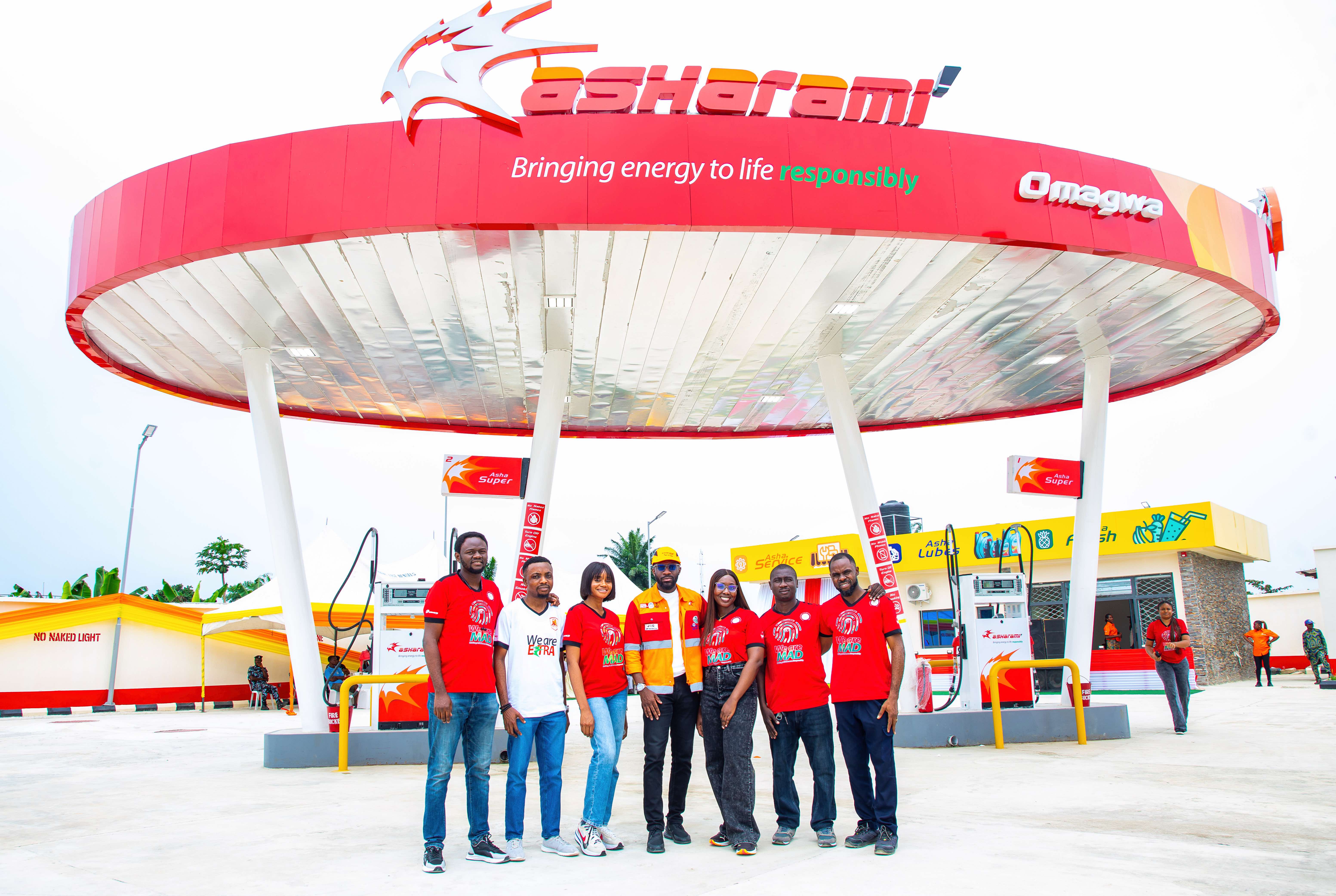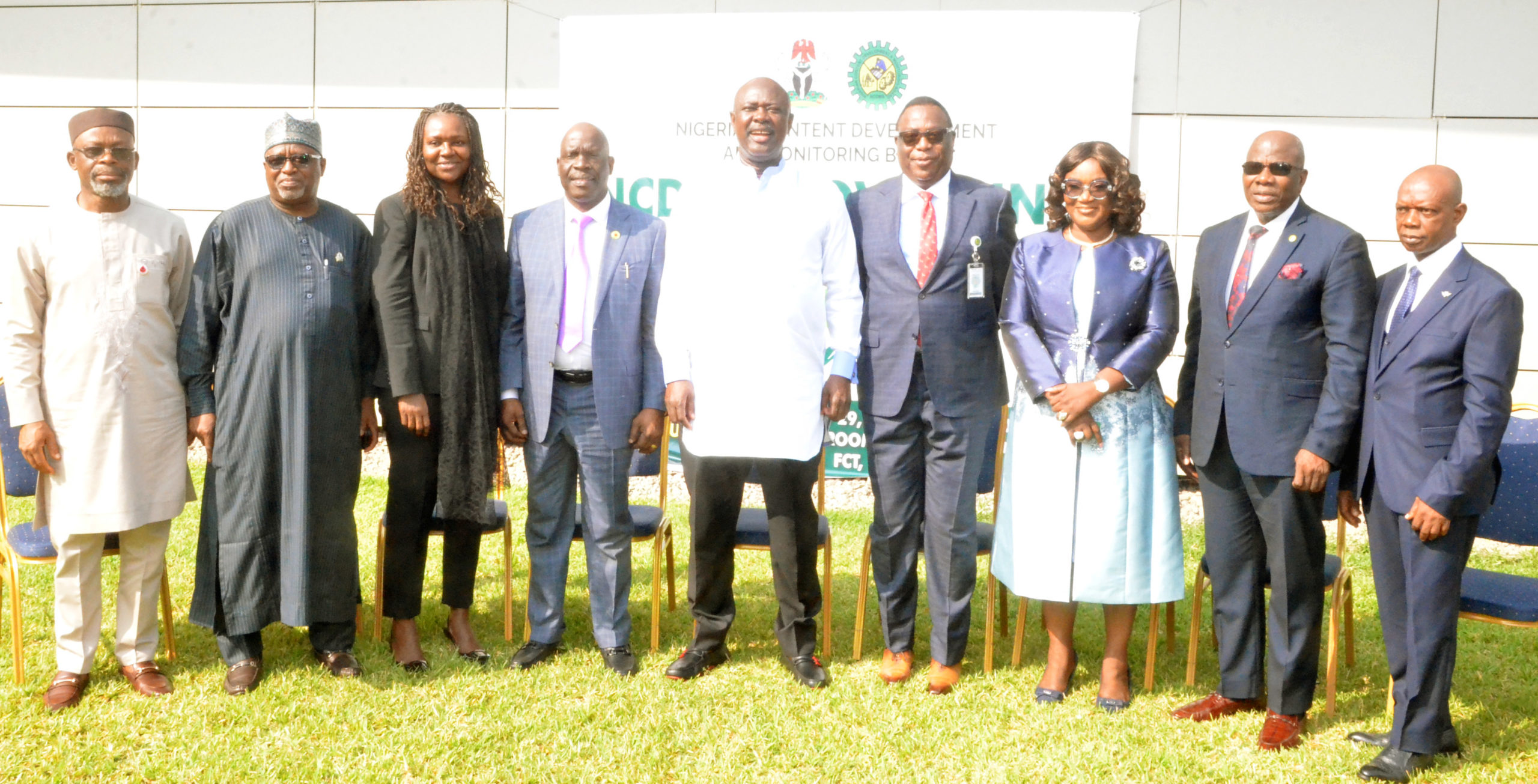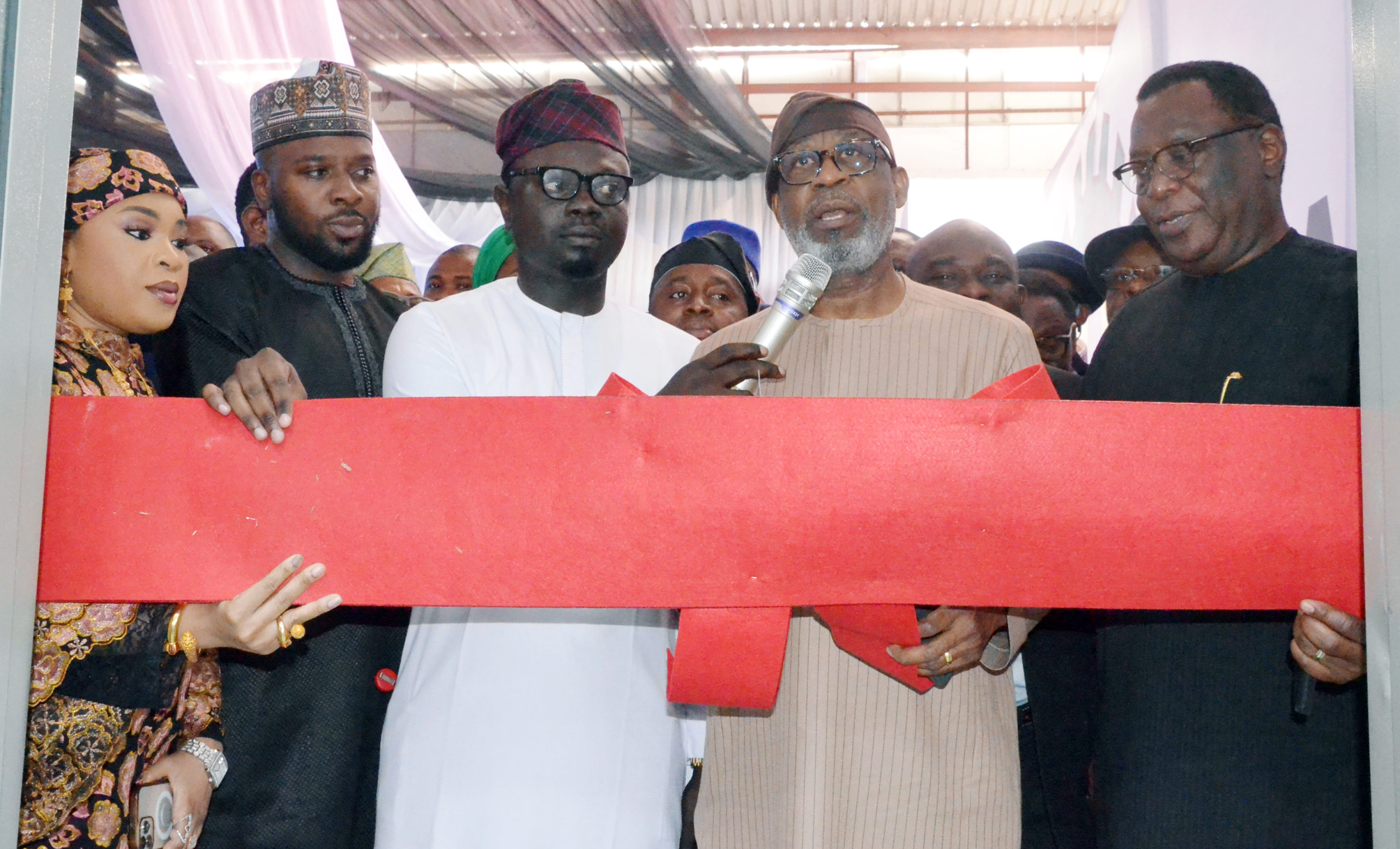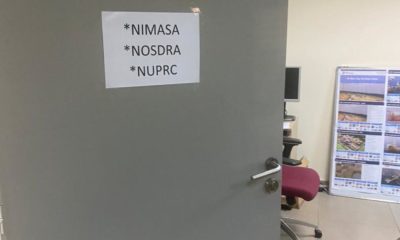Energy
Train-7 Project Hits 52%, Employs 8,300 Persons

…NCDMB, NLNG Sign E-Market Place Agreement
The ongoing construction of the $5bn Train-7 project being undertaken by the Nigeria Liquefied Natural Gas (NLNG) at Finima, Bonny Island, Rivers State has reached 52 percent and currently engages 8,300 Nigerians of diverse skill sets.
These facts emerged on Friday as the Management of the Nigeria LNG Limited led by the Managing Director, Dr. Philip Mshelbila held an engagement session with the Executive Secretary of the Nigerian Content Development and Monitoring Board (NCDMB), Engr. Simbi Kesiye Wabote at the gas company’s operational base at Finima, Bonny Island.
The high-level engagement was part of the three-day Nigerian Content Stakeholders Retreat. The forum provided a platform for the two oil and gas industry leaders to sign an agreement on the Oil and Gas E-Market Place. The agreement will see the roll out of tender opportunities from the Nigeria LNG Ltd on the E-Market electronic platform, thereby implementing a key provision of the Nigerian Oil and Gas Industry Content Development (NOGICD) Act.
Section 106 of the NOGICD Act defines the “Oil and Gas E-Market Place” as a virtual platform for buyers and sellers of goods and services in the oil and gas industry that allows for speedy and transparent transactions.”
Dr Mshelbila, commented that the relationship between his organization and the NCDMB has been conscientiously nurtured over the years, with both parties striving ceaselessly to fulfil statutory obligations.
He said, “We recognise the role of the regulator and are happy you recognise that of the operator and the need for regular engagement.”
He acknowledged the crucial role played by the Board in the take-off of the Train-7 project and assured of the company’s resolve to stretch its local content practice beyond mere compliance with the provisions of the Nigerian Oil and Gas Industry Content Development (NOGICD) Act.
He maintained that the company was committed to engaging in initiatives that would boost in-country productivity and economic diversification. “We cannot have a better Nigeria unless we develop the capacities of Nigerians,” he stated, restating the vision of his company to be “a globally competitive LNG company, helping to build a better Nigeria,” he added.
He bemoaned the difficulties the company is facing in getting adequate gas supply and the resultant under-production by its six plants to below 50 percent of their total installed capacity.
He remarked that feed gas to the NLNG plants comes mainly from some its joint ventures (JV) partners, including, Shell Petroleum Development Company (SPDC) Limited, Total Energies and Nigerian Agip Oil Company (NAOC), but their supply pipelines suffer recurrent vandalism, coupled with facility failure and low production from ageing wells, resulting in serious disruption of supplies.
He revealed that the Nigeria LNG was exploring several options to mitigate the challenge, including partnering with critical security agencies to curtail vandalism on the pipelines and working with their JV partners to increase their gas production. He added that the Nigeria LNG Board of Directors had also approved for the company to procure gas from other international and indigenous gas producers in the country, with the goal of enhancing the performance of Trains 1-6.
Dr Mshelbila expressed deep concerns that deepwater gas projects that would provide feed gas for the upcoming Train-7 and other future expansions had not been commenced by the international oil and gas companies (IOCs), despite the significant progress made in the construction of the Train-7 plant. This situation, he said, could lead to the completion of the plant without gas being available for it to liquify.
He solicited the Board’s support for the development of the deepwater gas projects, which are critical to keep Trains 1-6 full and provide gas for Train 7 and future expansion plans.
On his part, the Executive Secretary affirmed that the E-Marketplace will be a game-changer, which will enhance the Service Level Agreement (SLA) guiding the relationship between two organisations.
He noted that the Board decided to start with NLNG because the company’s record of excellence. He added that the intention of the E-Marketplace is to increase transparency in the tender process, “remove human interference in business processes, move things electronically and achieve better results”.
He described the Final Investment Decision (FID) and other critical steps that were taken for the Train-7 project taken at the height of COVID-19 as a proof of stakeholders’ enthusiasm for the project.
He expressed concern over the challenges of inadequacy of gas supply and promised to support the company along the lines of approving third party gas injectors and sanctioning new deepwater gas projects. He added that “most of the marginal operators have also found gas but part of their challenge is where to send the gas.”
He lauded the NLNG for its remarkable success, recalling that at the initial phases of the company’s take-off “the Management level had 90 per cent expatriates and 10 per cent Nigerians.” However, the table has now turned the other way, with the entire Management now consisting of Nigerians.
On milestones achieved by the foremost gas company since inception, its General Manager, Production, Engr. Nnamdi Anowi, said NLNG has as its core areas of operation – Liquefaction, Transmission, Transportation, Marketing and sales. He disclosed that over 5,770 LNG cargoes have been delivered as of September 2023 and over 500,000 tons of liquefied petroleum gas (LPG) produced and sold to markets overseas and in Nigeria.
Energy
Asharami Synergy Unveils Fuelling Solutions In Omagwa

In line with its commitment to driving access to quality petroleum products, Asharami Synergy Limited, a leading Sahara Group downstream company, has said the public can now access exceptional fuelling solutions at its newly commissioned retail station in Omagwa, Rivers State.
Situated strategically along the Airport Road in Omagwa, the station, which features a storage capacity of 45,000 litres each for Automotive Gas Oil (AGO, also known as diesel) and Premium Motor Spirit (PMS, also known as petrol) is equipped with two pumps and four discharge nozzles for PMS and AGO.
The facility also has ample space for sundry services in a bid to ensure consumers get more “miles and smiles” as well as the energy to “go further” with Asharami’s world-class products.
“The Asharami Omagwa Retail Station is fully operational, offering a range of premium products and services. It’s a one-stop shop that also gives our esteemed customers eat-in and take-out restaurant services, shopping, as well as the Asha lubricants and Asha Service experience which will ensure premium care for all classes of automobiles and engines,” said Oladimeji Williams, Head, Government Relations and Business Development at Asharami Synergy.
ALSO READ: NNPCL Launches Utapate Crude Oil Blend, Eyes Production Expansion In 2025
At the Commissioning, Willaims said the new station represents an important step in Asharami Synergy’s expansion plan aimed at reaching and serving more communities responsibly. “This station is strategically positioned close to the airport, serving as the gateway for powering socio-economic development in the community and those close to it, while enabling Asharami Synergy integrate all aspects of its downstream business towards ensuring efficiency and value for our customers,” he stated.
Williams commended the Federal Airport Authority of Nigeria (FAAN) and the Omagwa community leaders for their support and collaboration throughout the project’s duration, describing it as a “seamless and productive process that highlights Asharami’s corporate stewardship and social impact” in the community.
Similarly, Ifesinachi Ezike, Regional General Manager (South South), FAAN, emphasized the broader significance of the new station, stating, “This occasion marks a significant milestone not just for Asharami Synergy but for the airport and the entire community. It marks not just an opening of a new facility but the beginning of a renewed commitment to enhancing the travel experience of all our passengers and stakeholders”.
In a move that underscores its commitment to sustainability and community development, Asharami Synergy also commissioned a solar-powered borehole during the launch. The borehole is set to improve access to clean and reliable water for residents, marking a tangible contribution to the local community.
“At Sahara, we are always making a difference—not just through our business operations; we are unwavering in our commitment to driving sustainable development and building partnerships that enhance the well-being of our host communities,” Williams added.
Energy
Awards Galore For Shell, Staff At NAPE 2024 Conference

The Shell companies in Nigeria and staff won awards in recognition of their robust participation at the 42nd Annual International Conference and Exhibition of the National Association of Petroleum Explorationists (NAPE), held in Lagos.
At the closing dinner of the event, the Managing Director of Shell Nigeria Exploration and Production Company (SNEPCo), Ronald Adams pledged sustained efforts by the company to address “the Nigerian energy trilemma by powering progress towards energy security in a sustainable manner”.
On the awards, the Shell was declared Best Overall Exhibitor and Best Exhibiting Energy company (International) just as Geophysicist Somime Oguntola took home the Award of Excellence for Oral Paper (second place).
The icing on the cake was a Shell staff, Johnbosco Uche, being installed as the new President of the NAPE.
It was gathered that the Shell companies in Nigeria have supported NAPE since its founding in 1975, using the skills and expertise of the large pool of energy professionals in its employment to improve its activities especially educational and mentoring programmes.
In addition to being a major sponsor of the 2024 conference, Shell mounted a high-profile exhibition, featuring among other things, career counselling, engagements on Nigerian Content and Contractor development and panel sessions on Women in Industry and Sustainability Energy Challenge.
A highlight was the Shell medical stand which attended to more than more than 500 conference participants and members of the public over the four days of the annual event. The doctors and nurses offered a wide range of services including laboratory tests, deworming, medical consultation as well as ophthalmology checks and distribution of nearly 300 eyeglasses.
Adams referred to the operations of SNEPCo as an example of Shell’s contribution to energy security in Nigeria. “As a result of sustained production from Bonga, we have provided funds to finance development, created a new generation of Nigerian Deepwater professionals, empowered indigenous contractors and service providers, and implemented social investments that have touched lives in the six geo-political zones of the country,” he said.
Adams added, “SNEPCo and indeed Shell are in Nigeria for the long haul. Our commitment is reflected in both our current and growth plans, all of which are grounded in principles of safety, affordability, and competitive performance.”
Energy
Accugas Denies Culpability In Akwa Ibom’s Power Outage

Owing to the persistent power outage, which has crippled economic and social life in most parts of Akwa Ibom State and environs, Accugas Limited has washed its hands off the ugly situation.
This was contained in a statement under the signature of its Communications Manager, Okwudili Onyia, in which the company traced the anomaly to a “fault in the 132-KV Aba-Itu transmission line”.
To ameliorate the situation, the company maintained that “It is imperative that the restoration of the Aba-Itu line is completed as soon as possible.”
In addition, the company pledged thus, “Accugas will continue to partner with, and support, the government of Akwa Ibom State towards achieving the government’s agenda for economic development and prosperity of the state.”
ALSO READ: NNPC Ltd To Supply 100mmscf/d Gas To Dangote Refinery
The statement reads, “Accugas Limited, a subsidiary of Savannah Energy, wishes to strongly deny the misinformation concerning its alleged involvement in the current power outage in Akwa Ibom State.
“The power cut in Akwa Ibom State is entirely due to the reported fault in the 132-KV Aba-Itu transmission line, which, unfortunately, is preventing power being transmitted from the National Grid into the State. It is imperative that the restoration of the Aba-Itu line is completed as soon as possible.
“Ibom Power Company (“IPC”) is one of 23 thermal power generation companies which channel power to the National Grid, which in turn disseminates all accumulated power to each State of the Federation through the electricity distribution companies (“Discos”). Indeed, Accugas supplies gas to enable c. 20% of Nigeria’s thermal generation capacity and, as such, is a critical enabler of the Nigerian economy.
“Within Akwa Ibom State, Accugas has been the sole supplier of gas to IPC since 2014 and, together with other Savannah subsidiaries, has invested over US$1.5 billion in gas development within the state. Furthermore, Savannah has recently invested c. US$45 million in a gas compression project at Accugas’ Uquo central processing facility at Esit Eket. Accugas’ commitments also extend to several social investment projects in the state. All the foregoing investments and projects, including other imminent investments Accugas intends to make in the State, demonstrate the Company’s long-term commitment to Akwa Ibom State and Nigeria.
“Accugas will continue to partner with, and support, the government of Akwa Ibom State towards achieving the government’s agenda for economic development and prosperity of the state.”


















